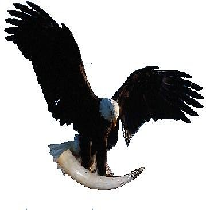Unlike the Gregorian calendar which has 7 days in a week, the Igbo calendar has 4 days in a week, 7 weeks in a month, 28 days in a month, 13 months in a year, 91 weeks in a year, and 364 days in a year.
The four market days which make up the native week in Igboland are namely; Eke, Orie, Afo, Nkwo. The Igbo man works in the farm for only three days and rests completely from farming on the fourth day. Eke is usually the holy day of obligation when people rest from farming, however some communities can decide to adopt any of the four market days for their rest from farming. It is considered abominable for anybody to farm on the holy day of obligatory rest.
These four market days also serve as a form of identification. The traditional names of most Igbo people are derived from the market day on which they were born.
| MARKET DAY | IGBO NAME DERIVED | |
| Male | Female | |
| Eke | Okeke or Nweke | Mgbeke |
| Orie | Okorie or Nwoye | Mgborie |
| Afo | Okafor or Nwafor | Mgbafor |
| Nkwo | Okonkwo or Nwankwo | Mgbokwo |
